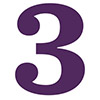

![]()
Professor of philosophy at Calvin College

What would you call the primary shortcoming in Christian academic engagement?
In a lot of what passes for the Christian “academy,” I think we are still too ensconced in echo chambers and not really exposing ourselves to the real academic challenges and cross-pressures of the day. In his “Advice to Christian Philosophers,” Alvin Plantinga advocated “Holy Ghost boldness” as Christian scholars set their agendas — and he meant for us to carry that out in the mainstream academy, not in the comfortable confines of ETS. On the other hand, too many Christian scholars in the mainstream academy simply play the games of their disciplines — the status quo of their respective guilds. But the imaginative resources of the Christian faith should make a difference for how we think about different aspects of God’s world. Finally, too many evangelicals still limit their notion of “Christian academic engagement” to theology. This is a serious shortcoming. We need Christian scholars going into sociology and economics, health policy and literature.

How can believers best cultivate a worshipful imagination?
Well, by worshiping! By committing themselves to the mundane life of a local congregation, giving themselves over to the rhythms and practices of the body of Christ. That’s not novel or rocket science. That said, I also think we need a longer conversation about what congregational worship needs to look like in order to impact the imagination. That’s why I wrote You Are What You Love.

As a philosophy professor at a Christian institution, how would you convince a Christian uninterested in philosophy that it is worth their time?
That’s a great question. Probably I’d make the case existentially: Philosophy asks the questions you need to ask yourself to live a contemplative, intentional life. As Socrates famously put it: the unexamined life is not worth living. Philosophy is self-examination. But for pastors and ministers and aspiring theologians, I would emphasize the extensive debts that theology owes to philosophy, from the very earliest eras of the church. It is very difficult to understand the theological tradition from at least Augustine onwards if you don’t have a solid understanding of the fundamentals of philosophy and the history of philosophy. Finally, I think philosophy has often proven to be the most potent lens for cultural analysis, for “reading the signs of the times.” That was true for Francis Schaeffer. I think Charles Taylor’s work has demonstrated that. And consider how often Tim Keller is quoting philosophers.




